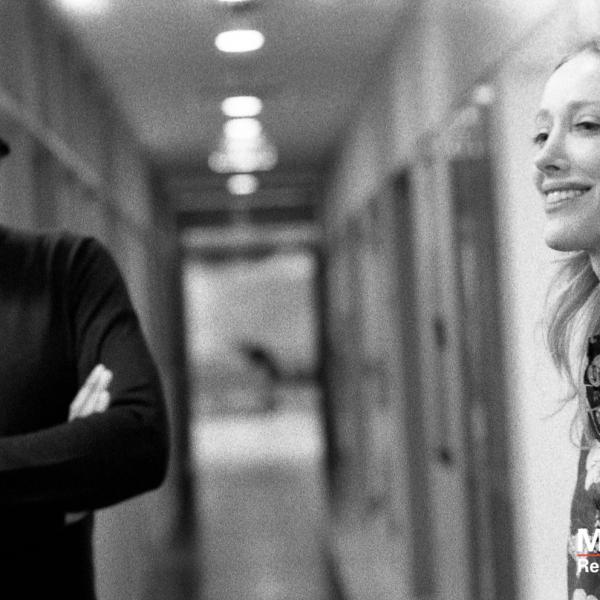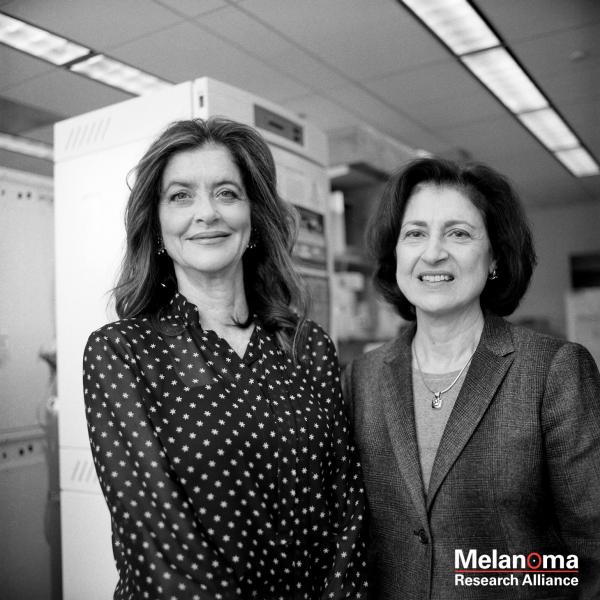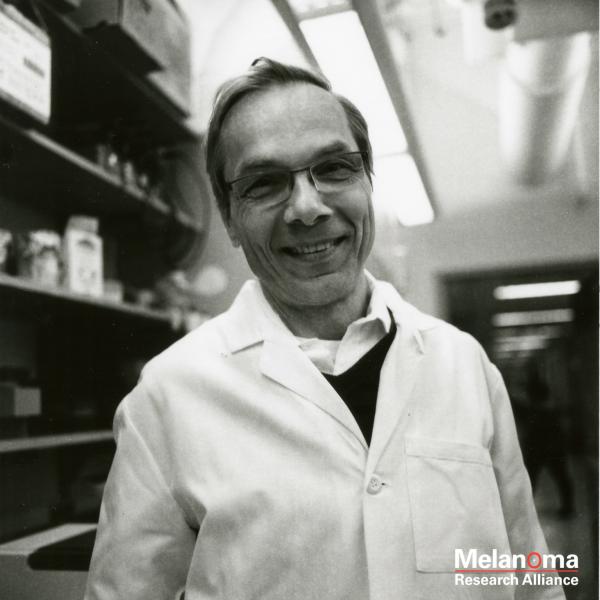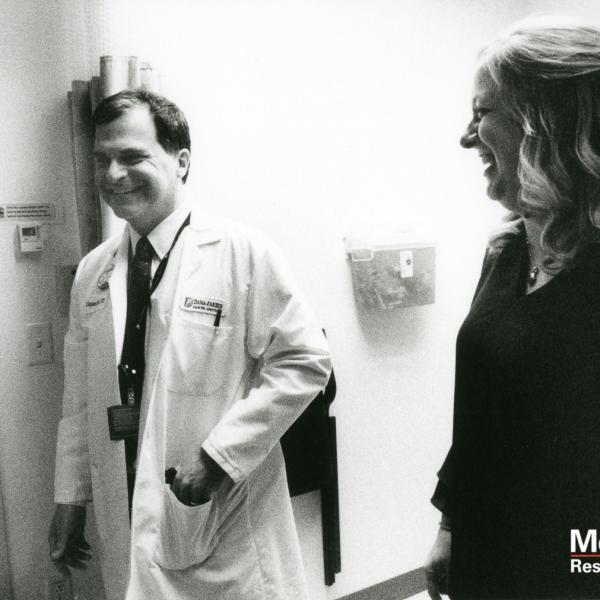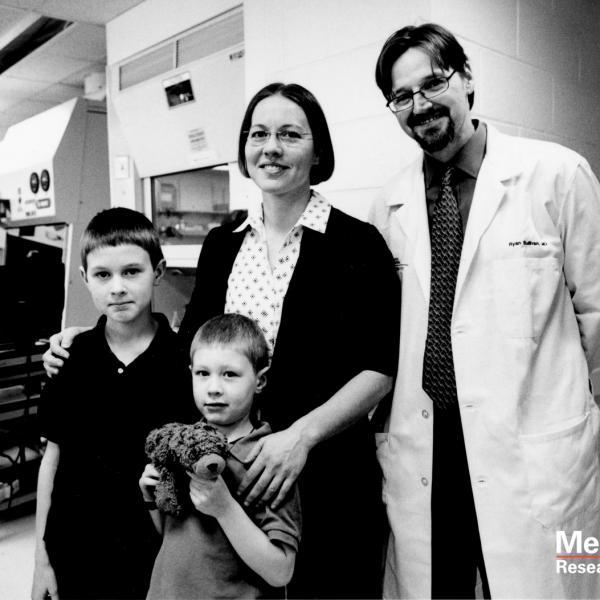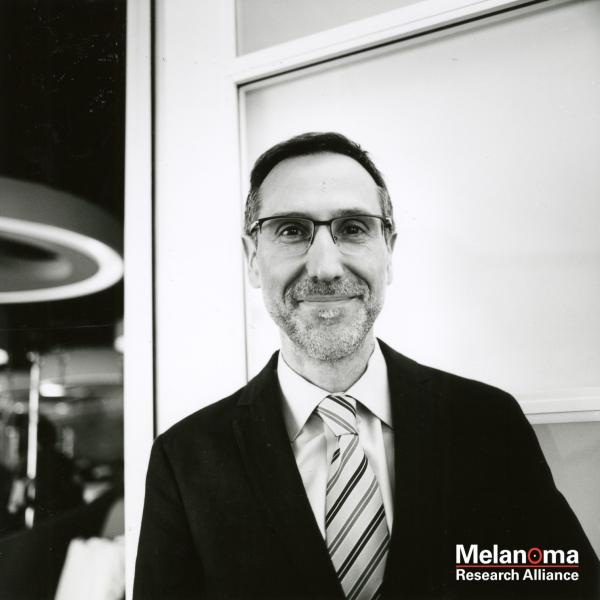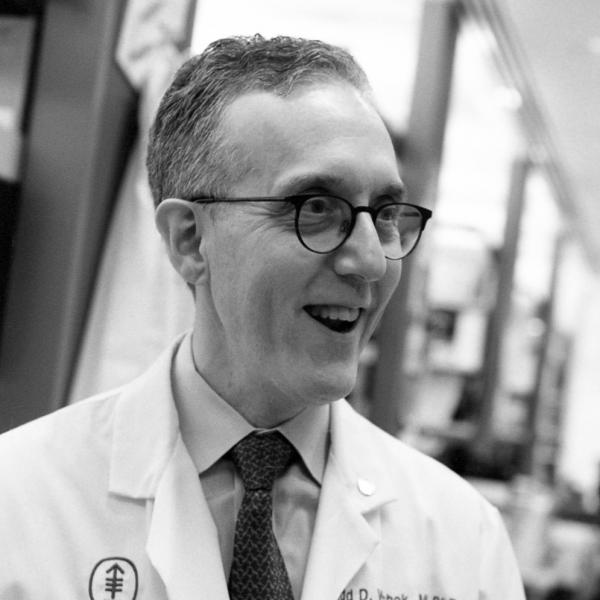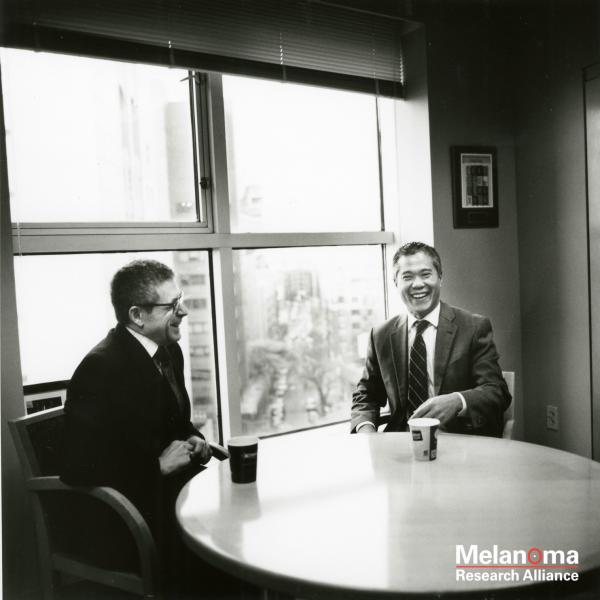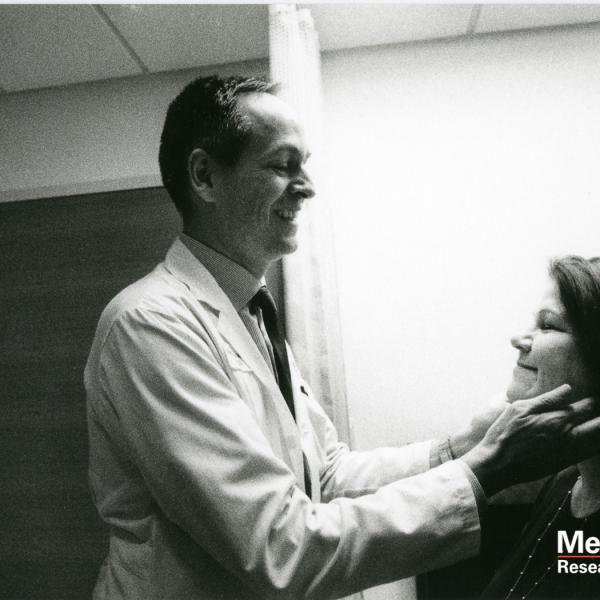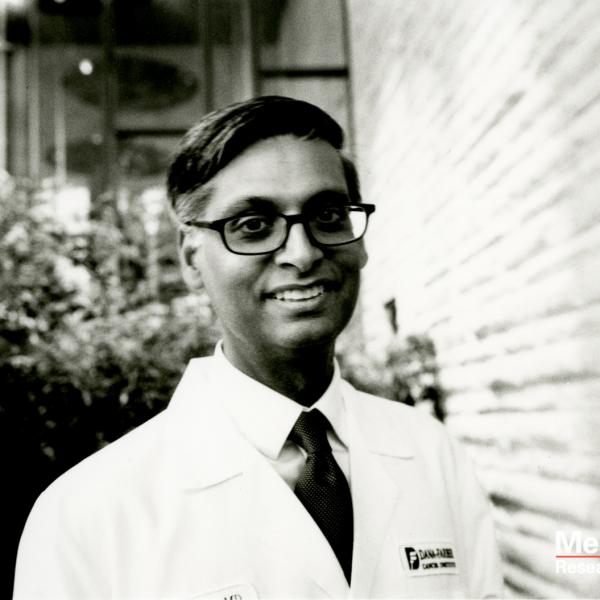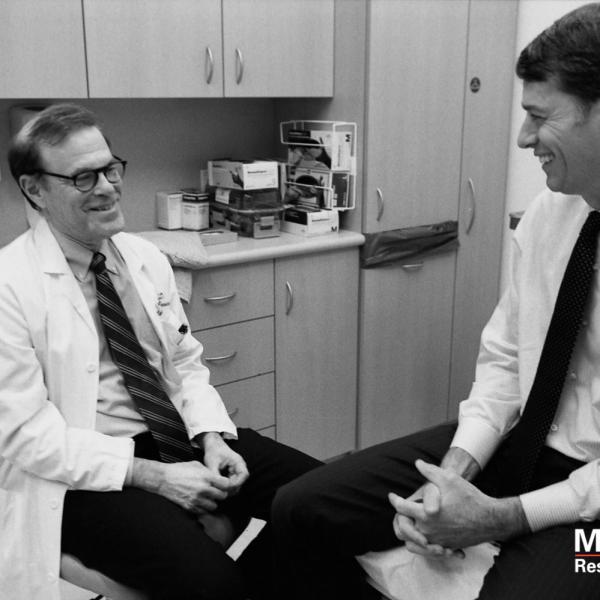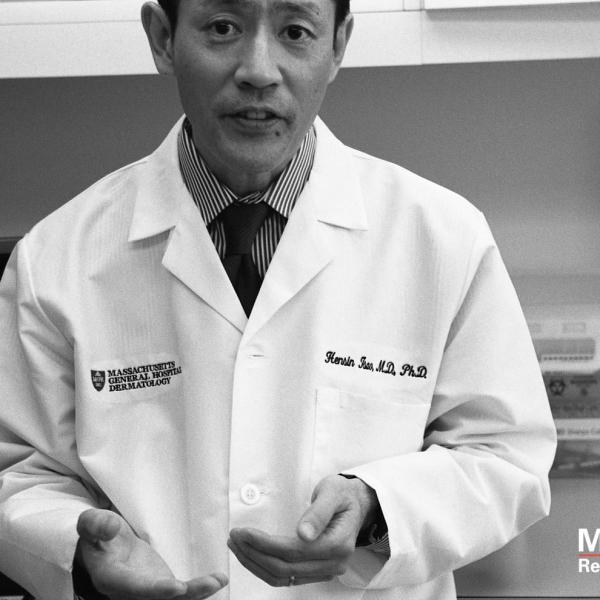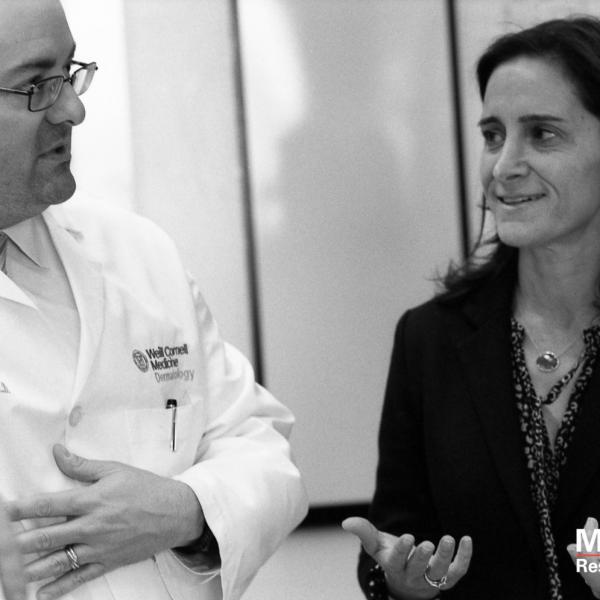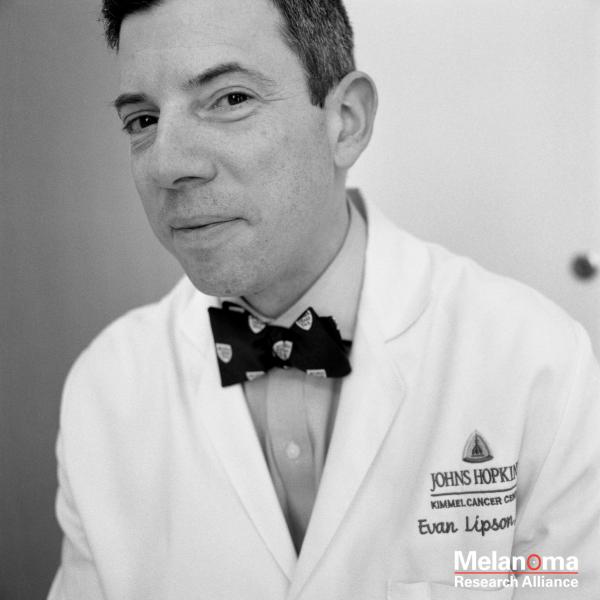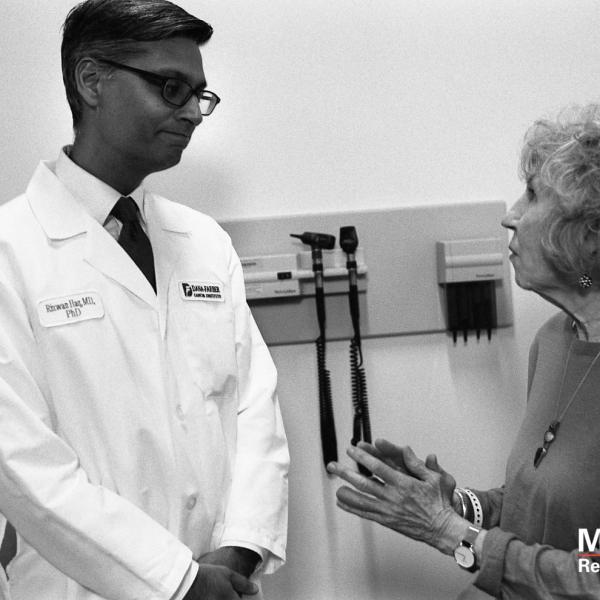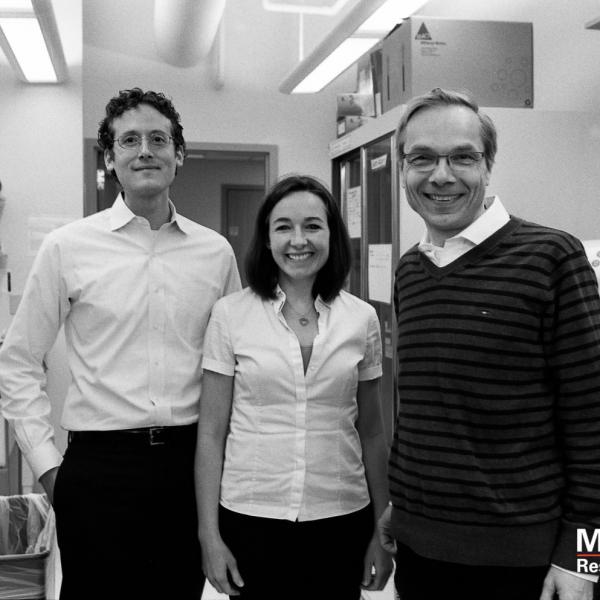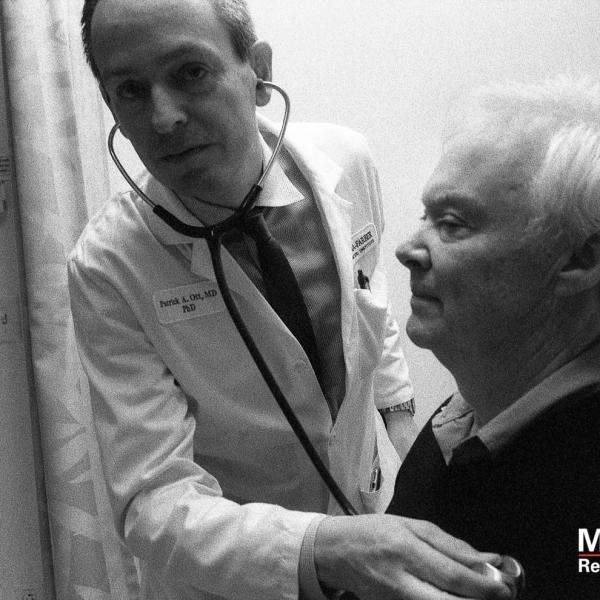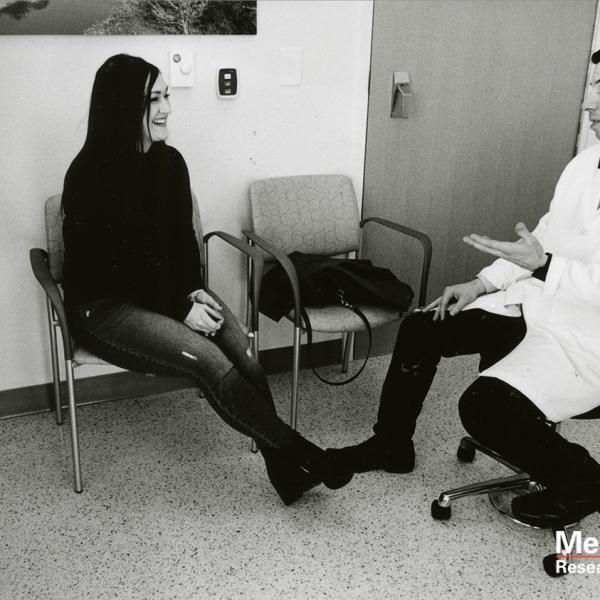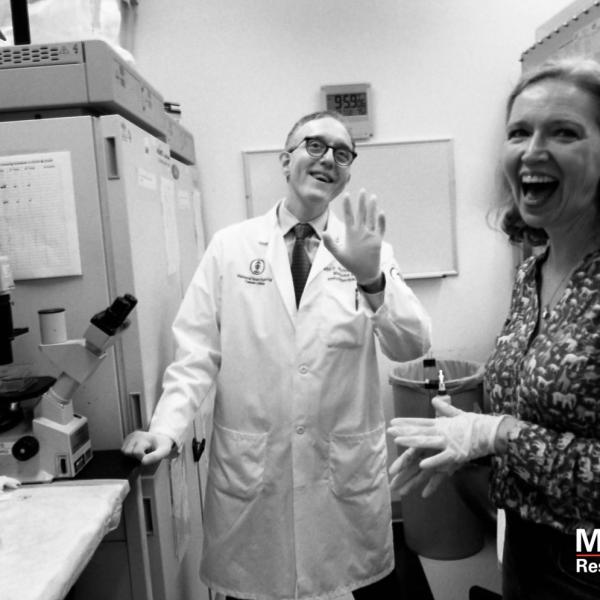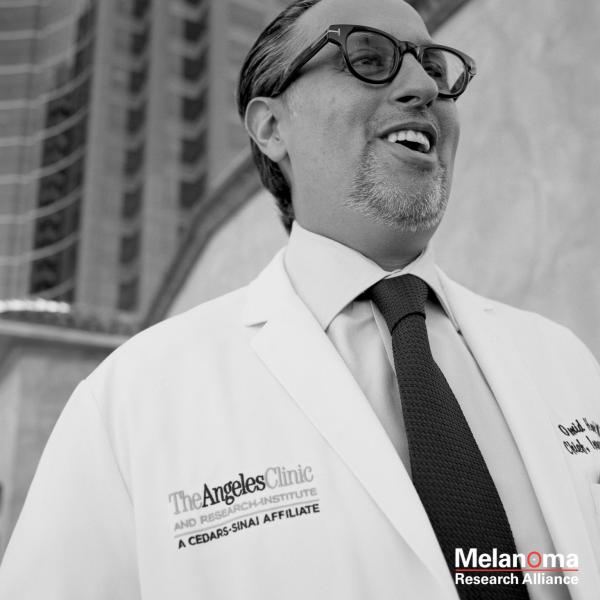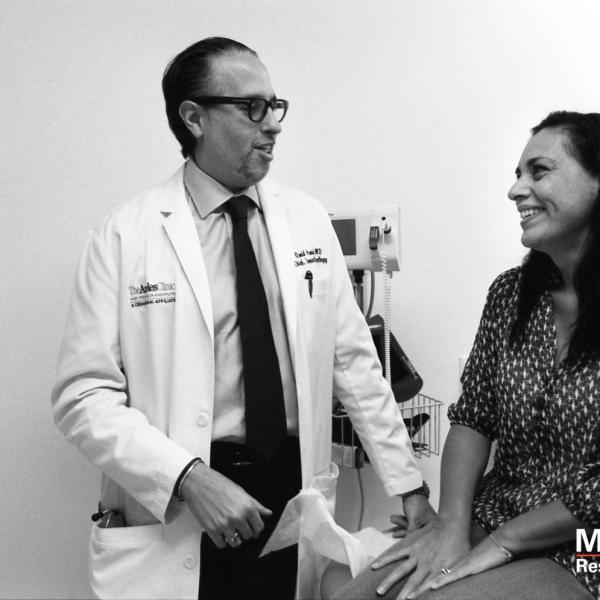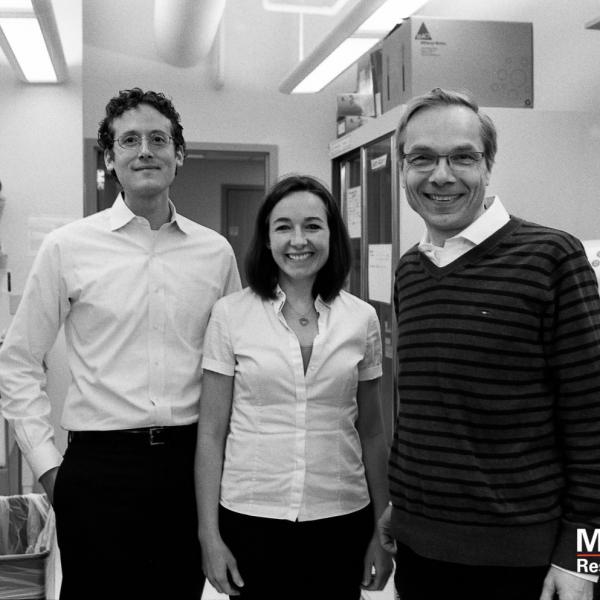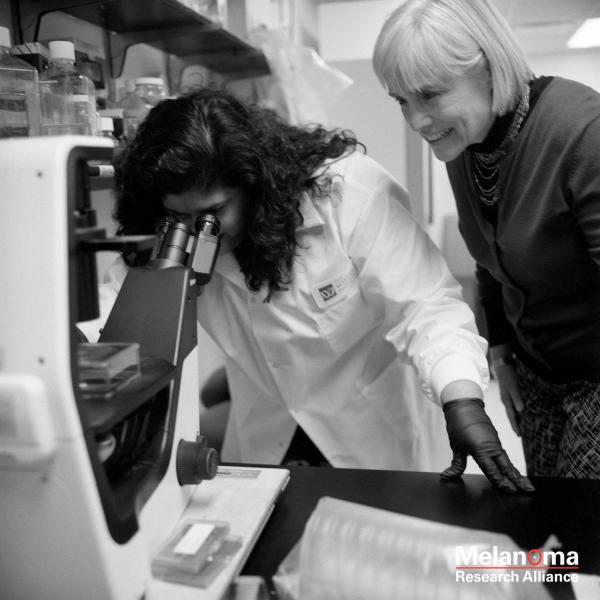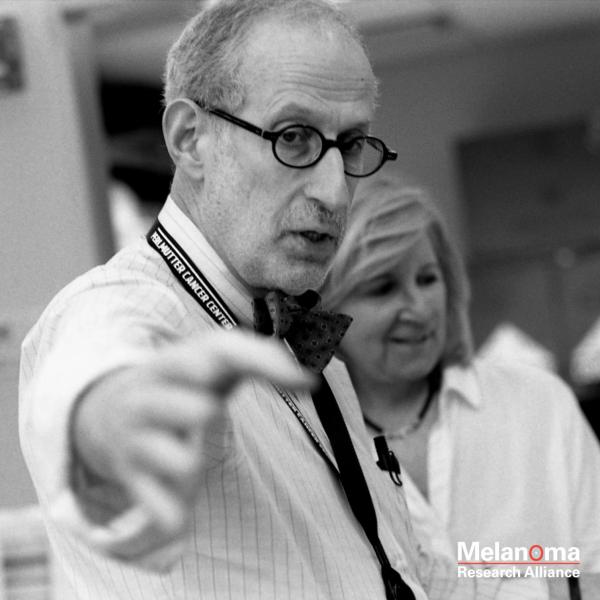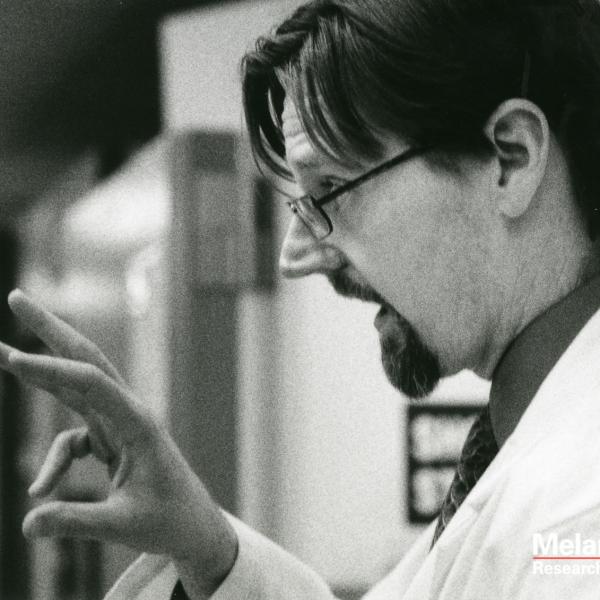Brandon Barniea

In 2015, Brandon Barniea’s life drastically changed when he was diagnosed with Stage 3 – and months later Stage 4 – melanoma. Despite long odds, this husband and father of two young children, was determined to fight back.
Brandon was quickly referred to doctors at Johns Hopkins University who removed the primary melanoma site from his scalp as well as 60 lymph nodes from his neck. He then met with Dr. William Sharfman, JHUs Director of Cutaneous Oncology. Dr. Sharfman encouraged Brandon to consider a promising clinical trial testing the immunotherapy combination of ipilimumab + nivolumab that was generating some strong data. Brandon liked the idea of combination therapy because he felt like it was doubling down on the odds of immunotherapy beating his cancer.
“Dr. Sharfman took full responsibility for my case. I was confident in his strategy, even though there were moments of doubt. We trusted him implicitly. My case required a multi-disciplinary team of Johns Hopkins physicians, but Dr. Sharfman was ultimately accountable. He was always aware of my status and we communicated regularly. He even called me once during the Superbowl to revise my medication instructions.” Brandon said. “To be seen by someone who is one of the best oncologists in the nation—I knew how fortunate I was and continue to be.”
The medications worked, but not without side effects. Within months his scans were clear, but he was experiencing several severe auto-immune related side effects, what doctors call adverse events. The medicines were doing their job to shrink the cancer – but treatment was taking a heavy toll on his body.
“I could barely walk, could barely see, and was taking fistfuls of pills to minimize the side effects. My heart became inflamed which lead to atrial fibrillation and ultimately cardiomyopathy. I felt like I’d lost control. It was a helpless feeling, and I couldn’t get answers because they just didn’t know,” Brandon says. “But Dr. Sharfman really helped keep me focused on our goal of long-term survival throughout the process.”
Immunotherapy works by stimulating the immune system to fight cancer. The clinical trial Brandon enrolled in was examining if nivolumab and ipilimumab together could more effectively treat patients than either medication on its own (learn more about combination therapies). Because of the heroic participation in clinical trials by patients like Brandon, what we know now, is that while safe and well tolerated for many patients, some immunotherapy patients experience serious side effects ranging from mild to potentially lethal. By effecting the immune system, such treatments can, in some instances, cause the body to attack healthy tissues, creating potentially life-altering or life-threatening issues.
Patients experiencing severe adverse reactions like Brandon are not uncommon. In fact, severe reactions occur in up to 20% of patients taking PD-1-targeting agents and over 50% in patients taking combination ipilimumab/nivolumab. With immunotherapies in use in an increasing range of cancers, managing or otherwise mitigating these side effects is a high priority for future research.
As the side effects of his treatments subsided, Brandon knew that getting back to his life was important; but so was giving back to the people and community who had supported him. That’s why he decided to dedicate the annual Poker Run he organizes in Annapolis, Maryland to raising awareness of skin cancer and fundraising for future melanoma research by supporting MRA.
“My wife and I knew this would be a great way to raise awareness of melanoma. MRA had been such a great source of information for us, and we are excited to give back,” he said. Not only did the event give Brandon a sense of closure, in four years he raised over $38,000 for melanoma research using the Melanoma Research Alliance Classy Platform!
Brandon credits modern medicine and the love and support from his family, friends, and strangers with keeping his scans clear.
“I feel so connected to this research and to the folks who will benefit from it in the future. I believe that immunotherapy is the future of cancer treatment; and controlling side effects so people can make it through these exciting new treatments is so important,” said Brandon.
Today, in 2019, Brandon has fully recovered from his heart condition and the inflammation he experienced during the clinical trial. His vitiligo is still present on his arms and legs and has given him what he calls a “Santa Claus beard,” due to lack of pigment. But he is thrilled to be back to his old athletic self, though, with a different outlook on his life.
“Every day is a blessing. My sense of urgency now is unlike anything it’s ever been before. When you find out there might not be a tomorrow, you stop waiting for ‘some-day’ to come along.” he says. “When you look at the calendar, ‘some-day’ is not on the calendar. Make it today.”
Without you, melanoma research can't happen. Learn more about clinical trials.
Please support MRA's mission to end death and suffering due to melanoma. 100% of your donation will go directly to funding innovative melanoma research, without any overhead, admin, or fundraising expenses.

